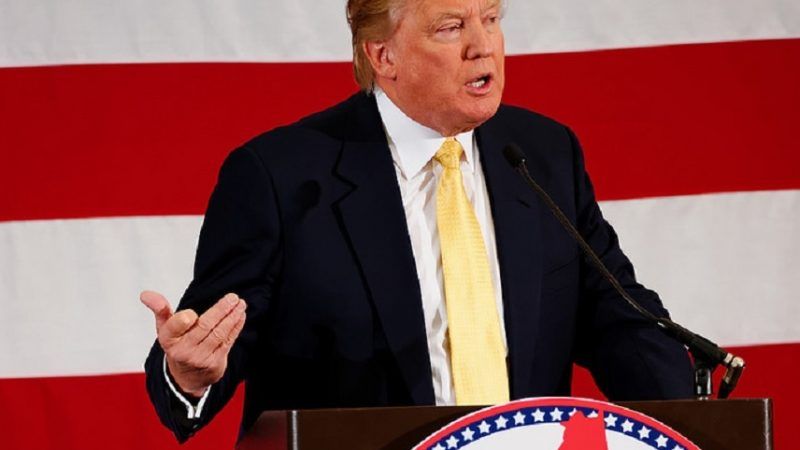What If Donald Trump Doesn't Sink the Republican Party?
Distaste for the president may not translate to distaste for other Republicans, as the special election in Georgia showed.

What if Republican voters who don't particularly like President Donald Trump are also able to compartmentalize their votes? What if they dislike Democrats more than they do the president? What if, rather than being punished for Trump's unpopularity, local candidates are rewarded for their moderation? This would be a disaster for Democrats. And Tuesday's runoff election in Georgia's 6th District shows that it might be possible.
Now, had Jon Ossoff come out ahead of Karen Handel, the coverage would have painted this as a game-changing moment: a referendum on conservatism itself, a harbinger of a coming liberal wave and a rejection of Trump's disastrous presidency. It would have illustrated that Democrats had figured out how to flip those suburban and affluent Republicans who aren't crazy about the president.
Perhaps some of that will still play out during the midterms because one race (or even four) doesn't tell us everything we need to know. Every district is unique. Still, there are definitely ominous signs for Democrats.
You can try and grasp at moral victories, of course, as I saw a number of liberal pundits on cable television trying to do yesterday. You can tell yourself that Ossoff had come closer than any Democrat ever in the 6th District. But there are numerous problems with this optimism. For one, there won't be many red districts where the president is less popular. Democrats are going to have to flip some of these seats to win back a majority. Second, it's difficult to imagine how the environment could be any worse for the GOP (though that, too, is possible). Moreover, Ossoff spent a record $23.6 million on a House race, yet Handel outran not only him but also Trump.
This last point is mentioned as often as the others, yet it's probably the most important. Trump's approval rating in the 6th District is equal to the national approval rating of 35 percent, which is to say exceptionally low for a Republican area. He had won the district by less than 2 percentage points back in November. According to a recent Atlanta Journal-Constitution poll, the majority of Republicans surveyed (55 percent) said, "expressing their opinion on Trump wasn't a factor in their decision-making" for the special election.
It's true that neither Ossoff nor Handel mentioned the president much during the race—which, in itself, bolsters the theory that Trump might not be as consequential in these races as Democrats hope. But the race was nationalized. Its implications were national. The coverage was national. The parties treated the race as one that would have national implications. Certainly, the money that poured into the race was national. One imagines that every Georgia Republican who went to the polls understood what this race meant for the future of the parties. When you nationalize races, Republicans will take more than the president into account.
We already know that an electorate can be happy with a president and dislike his party. Why can't the reverse be true? President Barack Obama, for example, carried healthy approval ratings for the majority of his presidency, yet voters decimated his party over six years.
What if there's a faction of Republican voters who don't like Trump but still don't like Obama's policies?
As high as Trump's unpopular ratings remain, and as constant a theme in the media as it is, elections are still a choice. For instance, Congress's low ratings as an institution are a mirage. Despite what you may have heard, it is actually one of the most popular institutions in America. Everyone loves his or her members of Congress. They just hate yours. Handel will likely be in her position as long as she pleases because incumbents win more than 95 percent of races.
If the average Republican is willing to look past Trump's sins (and, obviously, many GOPers like him outright), they can start weighing many other factors. They may, for instance, understand that voting for Ossoff is not only a vote against Trump but a vote for progressive liberals like House Minority Leader Nancy Pelosi, who was given a near 60 percent disapproval rating in the 6th District. This is the choice.
It is also worth noting that, as galvanizing as the anti-Trump movement has been these past months, it is not a movement of persuasion. The default rhetorical disposition of liberals is still to accuse anyone who takes a cultural or economic position to the right of Sen. Elizabeth Warren of being a clingy racist. Maybe affluent suburban Republicans don't appreciate the accusation. And maybe bashing the president and getting hysterical over Russia isn't a winning strategy in places like Georgia because, while the GOP has tons of problems, for what does the Democratic Party stand?
COPYRIGHT 2017 CREATORS.COM


Show Comments (200)